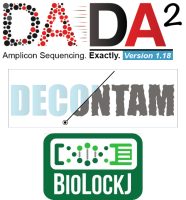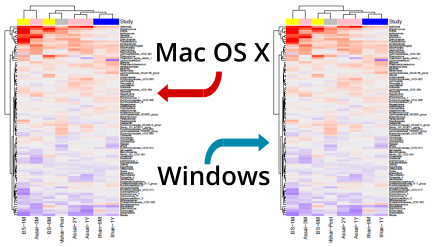Data Analytics Core
The PreMiEr Data Analytics Core is an integral part of the success of the ERC not only by the research it performs, but by supporting the hardware and software needs of all other research thrusts. Its support goals can be broken down into three main areas:
1. Providing a seamless, central repository with core services providing scientific data processing and analysis support, report and figure creation services, and seamless and automated ability to start and modify processes and analyses.
2. Ensuring transparency and reproducibility to eliminate “silos” of data, allow teams to easily work together, publish results that fully expose the processing pipeline, publish virtual containers, and support version control.
3. Being “hardware agnostic” to allow any PreMiEr researcher (or interested scientist) to faithfully reproduce analyses regardless of hardware, and to provide virtualized containers for on-campus and other systems.



Currently Funded Projects
Data analytics in microbiome engineering
This project encompasses all the computational research and support efforts of the PreMiEr Data Analytics (DA) core. These efforts include:
- Consulting with and supporting other projects with computational and data storage needs
- Helping in the design of bioinformatics projects
- Lending advice and training to PreMiEr scholars on data analysis
- Analyzing data sets produced by the ERC
- Performing research on microbiomes of the built environment

Anthony Fodor
Project Lead
UNC Charlotte
Previously Funded Projects
Overcoming contamination in low-biomass microbiome measurements
Status: Part of PreMiEr core project “Healthcare settings measurements” effective September 1, 2024
Faculty: Benjamin Callahan (NCSU, lead), Kristen Rhinehardt (NCAT), Lawrence David (Duke)
Description: Environments in indoor spaces often reflect low biomass conditions, or spaces where the number of microbes is relatively low. Accurately sampling and sequencing the DNA or RNA of these microbes and distinguishing these communities from contaminants is a major concern. This project aims to develop the next generation of low-biomass microbial measurements that are effective, economical, and relevant to the wide spectrum of built environment sample types.
Building a Building Genome Collection (BBuGCo)
Status: Part of PreMiEr core project “Healthcare settings measurements” effective September 1, 2024
Faculty: Joshua Granek (Duke, lead), Claudia Gunsch (Duke), Rachel Noble (UNCCH), Jennifer Kuzma (NCSU), Benjamin Callahan (NCSU), Scott Harrison (NCAT)
Description: Microbiome research depends on the microbial genomes in databases. Microbiome sequence data that cannot be mapped to a genome in a database is biological “dark matter” and it is difficult or impossible to derive biological meaning from this data. This project aims to determine optimal sequencing and analysis approaches for different sample types and to determine, for each sample type, which sequencing approach is most amenable to generating high quality metagenome-assembled genomes (MAGs).
Development of a computing infrastructure network and bioinformatic workflows for microbiome research
Status: Sunset effective September 1, 2024; Responsibilities transferred to PreMiEr core project “Data analytics in microbiome engineering”
Faculty: Kristen Rhinehardt (NCAT, lead), Anthony Fodor (CHAR), Joshua Granek (Duke)
Description: This project will determine the computational assets and needs across the center and develop a comprehensive PreMiEr computational research and training infrastructure to support bioinformatics and microbiome research. This will be accomplished through an assessment of the computational resources within PreMiEr and the development of bioinformatic workflows with training modules accessible to all participants.
